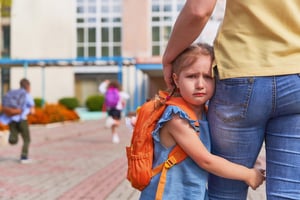 Children who are going through the adoption process are experiencing some form of trauma. This trauma coincides with very crucial developmental stages in their life. So how can foster or adoptive parents prepare for this transition and give their new family member the best chance at success? It starts with understanding what the child is going through and how they interpret their experience. Adoptive parents also need a support structure of professionals who can help guide them through these difficult times. Whether you are fostering or adopting, make sure you are partnered up with an agency that offers guidance and professional support throughout the entire process.
Children who are going through the adoption process are experiencing some form of trauma. This trauma coincides with very crucial developmental stages in their life. So how can foster or adoptive parents prepare for this transition and give their new family member the best chance at success? It starts with understanding what the child is going through and how they interpret their experience. Adoptive parents also need a support structure of professionals who can help guide them through these difficult times. Whether you are fostering or adopting, make sure you are partnered up with an agency that offers guidance and professional support throughout the entire process.
Children experiencing trauma during key developmental stages may exhibit regression or delayed developmental markers, but these are normal challenges of the process and can all be overcome with a little understanding and the right approach. Through their Child Welfare information Gateway, the US Department of Health and Human Services has provided some information and tips to help people understand how to navigate these challenges.
Attachment and Developmental Stages Throughout Childhood
Posted by: childwelfare.gov
Children who have experienced separation and loss and/or relational trauma may struggle with developing secure attachments. Early insecure attachments can negatively impact a child’s brain structure and development, which can be displayed in a variety of ways. These problems may show themselves as developmental delays, difficulty with social relationships, struggles with emotional regulation, aggression, low self-esteem, and depression. Adoptive parents who are struggling with their child’s attachment style and development should know that asking for help is a sign of strength; helping a child connect with a professional who is skilled in evidence-based attachment therapies can be paramount to the child making developmental gains and building connections with their caregiver(s).
Below are some quick facts and tips that incorporate attachment and brain development concepts.
- Attachment issues and developmental delays can be normal responses to the losses experienced through adoption.
- Brain development happens across the lifespan; however, infancy and adolescence are periods of high brain growth and restructuring. These time periods are ripe with opportunities for the brain to make connections about the child’s safety and security. These connections are best established through ongoing relationships with nurturing, consistent, and supportive caregivers.
- It is integral to parent and interact with children according to their developmental age and not their chronological age, so they can grow and repair attachment.
- Alternative discipline methods that are developmentally appropriate are encouraged for children with attachment issues and developmental delays, as their understanding of consequences and reactions to them may not be the same as those with healthy, secure attachments. Building relationships and establishing connections should be encouraged throughout the discipline process.
- Children’s adoption stories and the reassurance that the child will forever be in the adoptive family should be shared early and often in developmentally appropriate ways. This gives children time and space to process their grief and loss, while also reinforcing the connection they have with their adoptive families. It gives children a narrative and sense of identity through difficult transitions that may cause fear of separation and abandonment, like being watched by a babysitter while their parents are out when they are young or leaving home for college or a career when they are older.
With the tips above and the depth of resources and training available at at your local foster agency, we strive to bring new families together in a healthy way.
For more information on becoming a foster parent, contact a local foster agency to discover the resources and support they offer. We're here to assist you in any way we can, ensuring that you have what you need to create a loving and stable home for children in your care.
For more information about our programs and how we can help, visit our website or contact us today.
